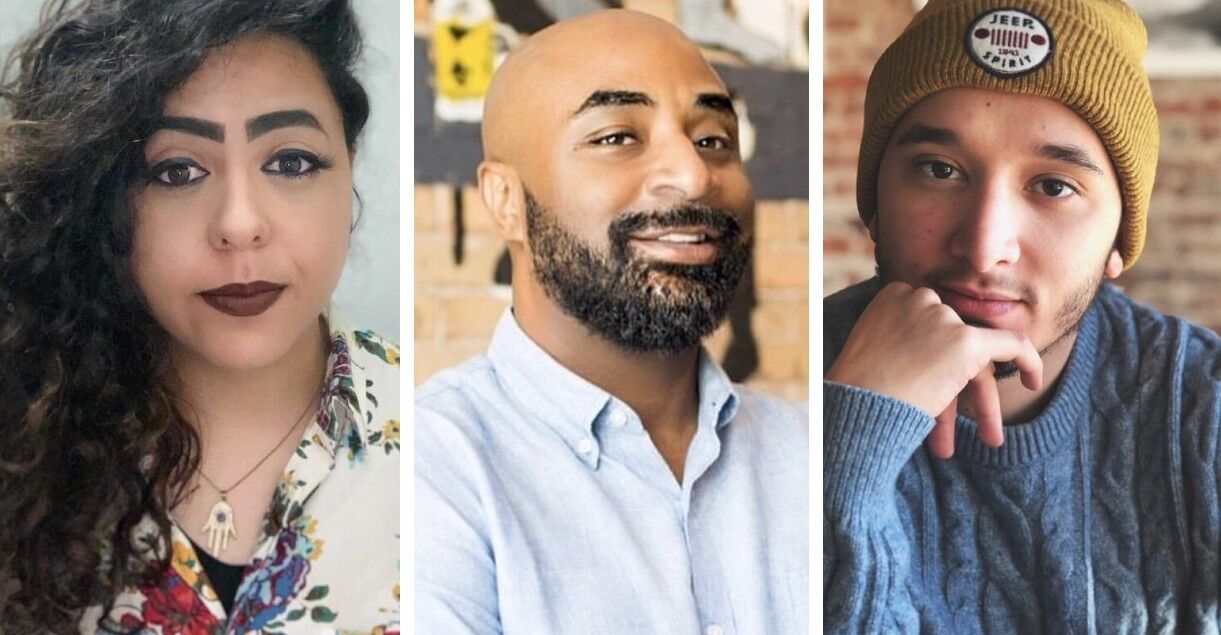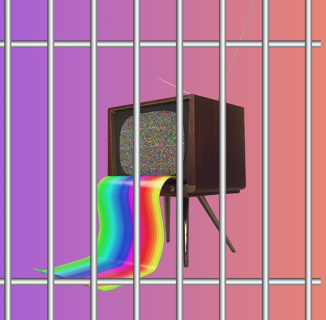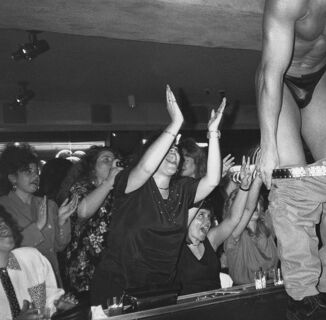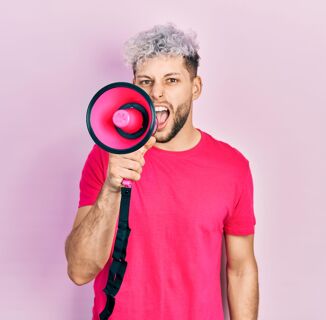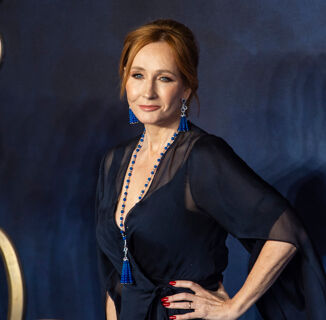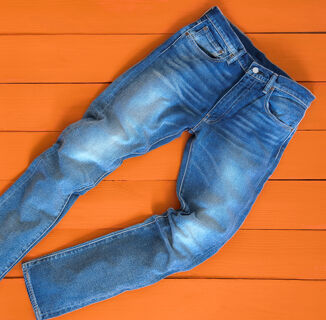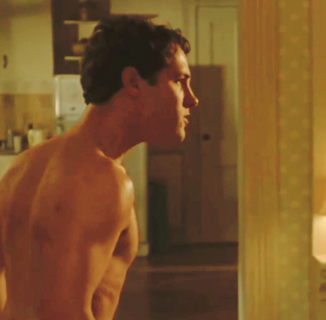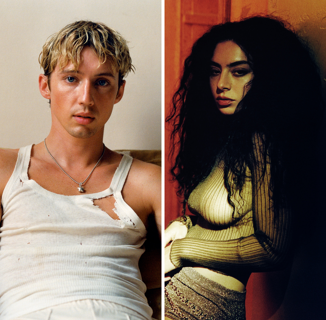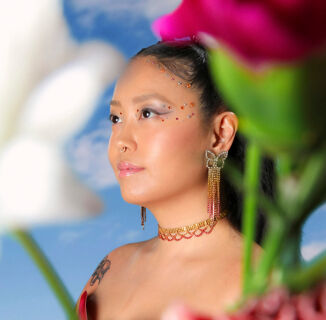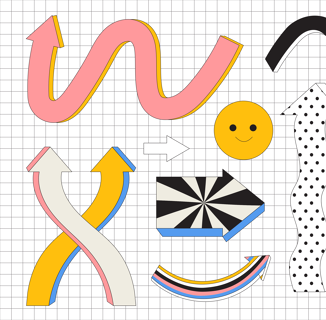Building a growing voice for LGBTQ+ Muslims worldwide, the appropriately named The Queer Muslim Project is going from strength to strength.
The project was founded in March 2017 by Rafiul Alom Rahman. Born and raised in Northeast India, Rahman now spends his time between there and Delhi (he’s mainly been home with his parents during the pandemic).
It began life as a simple idea: “A movement to empower and amplify queer Muslim voices around the world,” Rahman tells INTO, via a WhatsApp call.
“When I grew, up there were very few references for me,” says Rahman, who identifies as queer. “I grew up in a small town in Assam bordering Bangladesh. I did not have enough information and knowledge about sexuality. And then there is this idea, quite prevalent among conservative Muslims, that homosexuality or gay rights are not compatible with Islam. For a long time, I did not know the right way to be.”
Rahman says that it was only when he went to college in Delhi that he began to learn more about sexuality. He was struck by the lack of queer representation in Muslim spaces, but also the lack of Muslim voices in LGBTQ spaces.
“I realized especially when it came to role models, seeing other people like me, they were not visible.”
After college, Rahman applied to do a Ph.D. in the U.S. This took him to the University of Texas in Austin.
“I got into a fully-funded program in the sociology department there, but halfway through the program, I realized my heart was very much in the social sector and I wanted to do more community-driven work. I discontinued my Ph.D. and started the Queer Muslim Project as an online portal mainly to create awareness around some of the inclusive conversations that were happening around Islam.”
The Queer Muslim Project’s Instagram and Facebook pages now have around 40,000+ followers. They feature photos and stories from queer Muslims, highlighting their lives and experiences.
Following requests, in 2018, the Project began to hold workshops and other events to bring queer Muslims together.
“In May 2018 we organized the first, ever LGBTQ+ Muslim consultation, in Bangalore, southern India, and that was the first offline event we did to understand experiences. We’d got support from other organizations, and had around 25-30 participants from across India.”
That’s been followed by further expressive art-based and storytelling workshops, Iftar dinners, monthly community meet-ups and a Queer Muslim Retreat in January 2019.
A lack of representation has been cited again and again as an alienating factor by those involved with the project.
“When you look at popular culture, Muslims are represented in very limited frames,” says Rahman. “You’re always framed as a terrorist or somebody who’s a potential threat. And when it comes to queer spaces and Muslim spaces, there’s not enough where you can go. It feels like a double whammy, where you struggle for acceptance, struggle for visibility and representation within queer spaces in as well as Muslim spaces.”
The Queer Muslim Project has partnered with the British Council, American Centre and Instagram to further amplify its work online. All through the pandemic, the Project has curated digital campaigns, a pride festival, produced a well-being guide, and even ran an online course on gender and sexuality in Islam for participants from South and South East Asia. The Project’s latest work includes a new Digital Newspaper, entitled The Queer Muslim. Created with other young queer Muslim artists, creators and activists, it will specifically highlight more queer stories, like those below.
Brandy
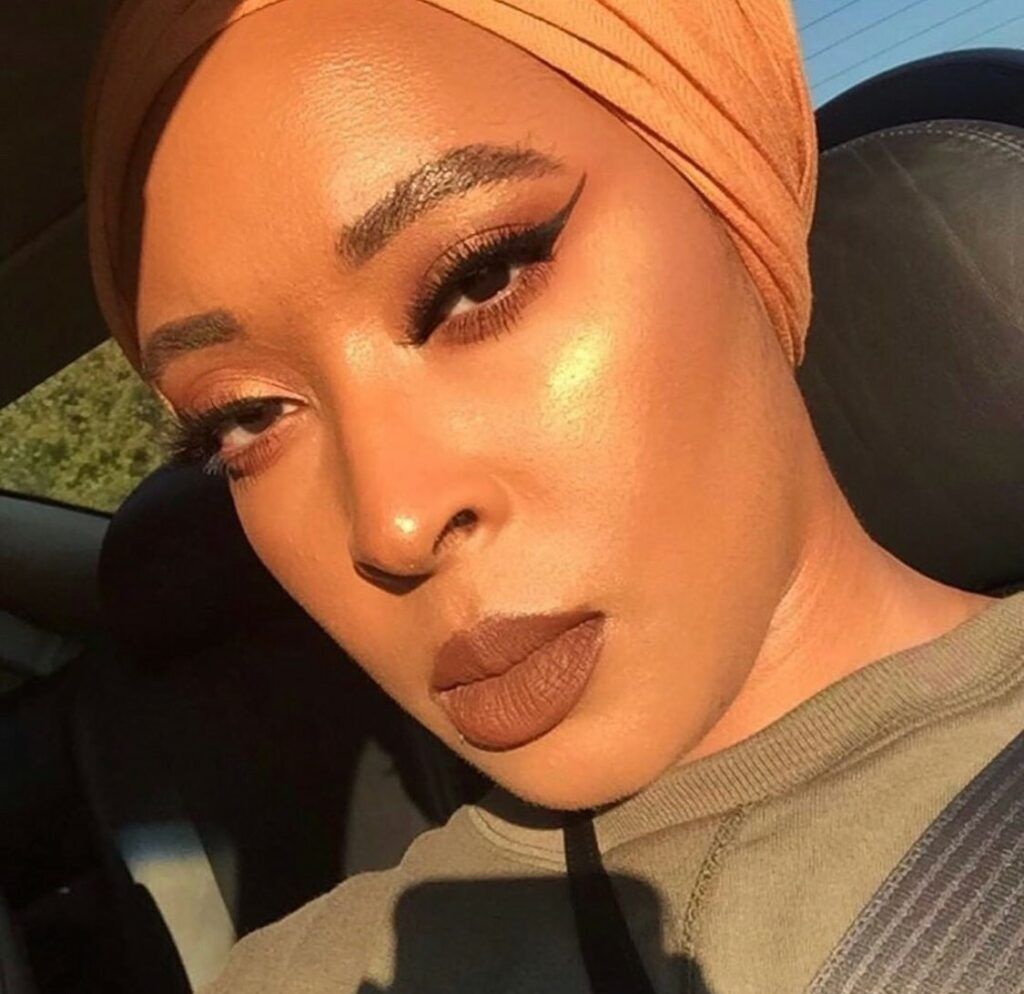
“Pride to me means celebrating my intersectionality. I can’t embrace one facet of myself without embracing all facets of myself that includes being black, lesbian, Muslim. I was always told growing up, and even after I converted to Islam, that I was making myself a moving target: a Black, lesbian, Muslim woman.
“I’ve literally had people laugh at me because they don’t believe that all these things can be within one person. But I’m here to tell you…we are here…we are queer…and we are Muslims.
“I often have many battles to fight. I’m always having to prove I’m black enough, lesbian enough, or even Muslim enough. But I’ve found that at the end of the day, as long as I have family that supports my right to choose who I am, then what others say doesn’t matter. By American standards they see all my ‘three strikes’ as my weakness. But I see them as badges of honor and I also see them as my strength.
“It takes a STRONG BLACK QUEER MUSLIM to state hate in the face from all sides and say: ‘even if you don’t like me for who I am. I’m sending love and light your way.’ And I try to live by that philosophy when people talk about oppression, and when I try to educate people on race in the black experience, oppression from the queer experience, and Islamophobia from the Muslim experience.
“I find when I am my authentic self, people are more receptive. And being your authentic self is what pride is about. I think no matter who you are, if you are queer, just be you. People love you that way. The ones who don’t, don’t matter.”
Brandy, @badgal_khaleesi (she/her)
Rasheed
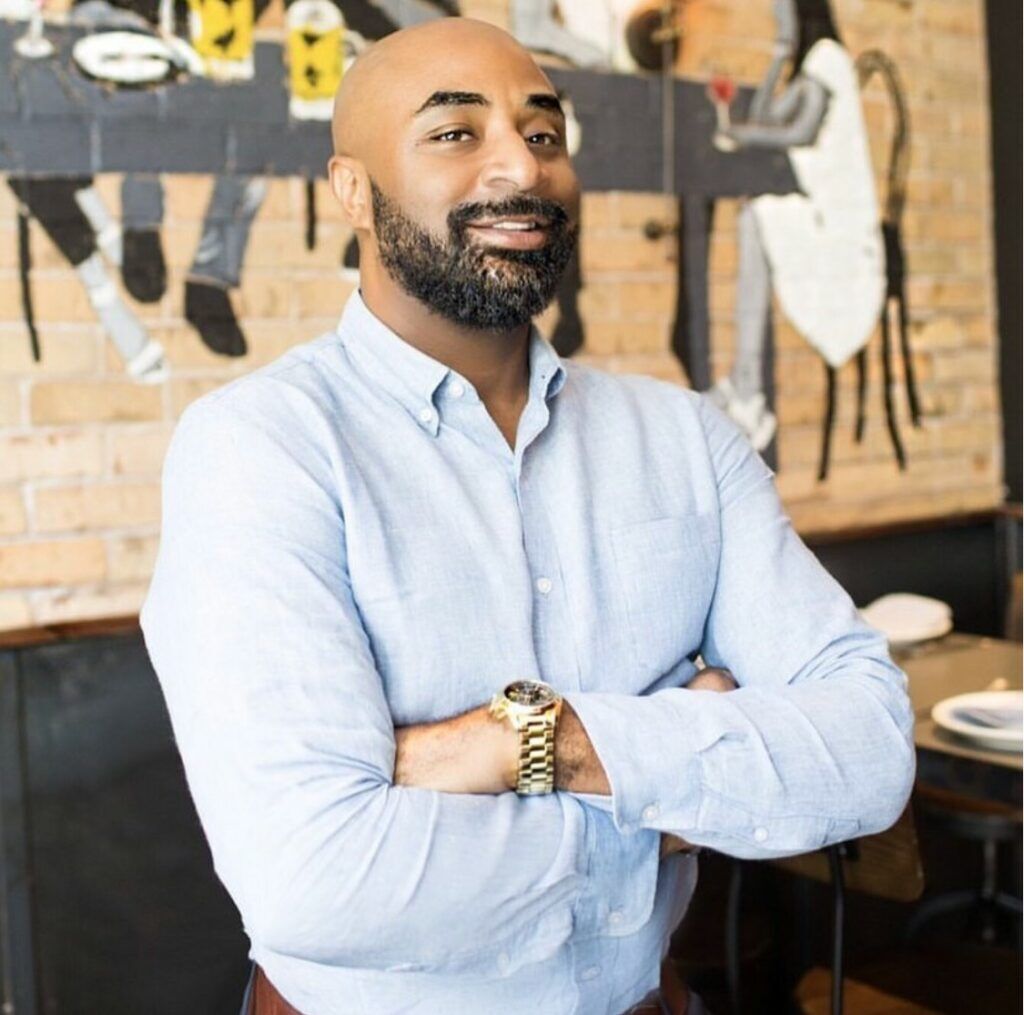
“Being a gay, black, American-born Muslim was torture for me. I never understood that those things could coexist in one person and still have happiness. I spent years lying to myself, to the Mosque, to my family – chasing a happiness that pleased everyone but me. I thought that I could ‘deny the gay’ away and when that didn’t work, I thought I’d ‘pray the gay’ away. I created a vacuum of self-hatred convinced that I didn’t deserve happiness. How could my faith be so strong and I still be such a horrible person, unworthy of Allah’s grace and mercy?
“Rasheed means “Guide To The Right Path: – once I understood that there is no compulsion in religion, I understood the right path was one I had to find on my own. I understood that my faith and my sexuality were both mine, and one did not define the other.
“I came out at 32 years old, to an accepting family and my own happiness. True happiness was always within my reach. Being my true self, was the right path all along.”
Rasheed, @rasheedshakur (he/him)
Shahamat
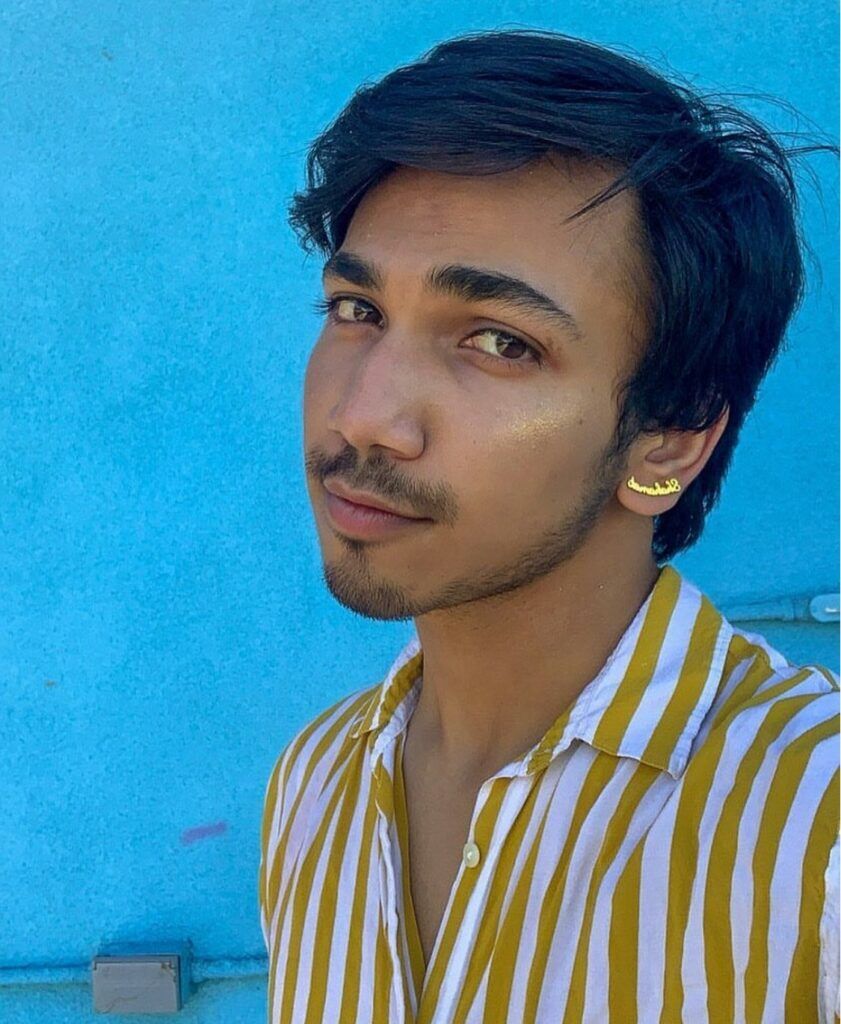
“I write a love letter to Xulhaz Mannan every day. Like me, Xulhaz was a gay Bangladeshi man who loved love. Like me, he was a writer, a poet, and as I aspire to be, a true Bengali Nayaka. Just after coming out, Xulhaz was brutally murdered in his own home.
“And today, I wake up peacefully in mine, I wash my face, open Grindr, I stop to look at myself in the mirror. This last part is much harder on some days than others. I see myself, Brown, Muslim, Gay, and I wonder, what kind of God would make me like this? Why here, at the seemingly impossible intersection of covert identities?
“My love letter to Xulhaz is different each day. Sometimes, it is holding hands with a man while walking through Piedmont Park in Atlanta. Or it is blocking the number of the abusive Tinder boyfriend. Or it is looking in the mirror, caring for and admiring my Brown skin, confessing to myself that it is beautiful, that past all the pretty gay white boys on Instagram with their abs and their racist dating app bios and their TikTok-perfect relationships, that my self-love is radical all on its own.
“Xulhaz’s legacy, his life, his love remind me every single day what queerness really means. To be Queer is to be a political troublemaker. And I sign all of my love letters to him with a promise to this rebellion. I love you Xulhaz and it is because of you, I know why God would make us Brown, Muslim, Queer — troublemakers.”
Shahamat, @ushahamat (he/him)
Burhan
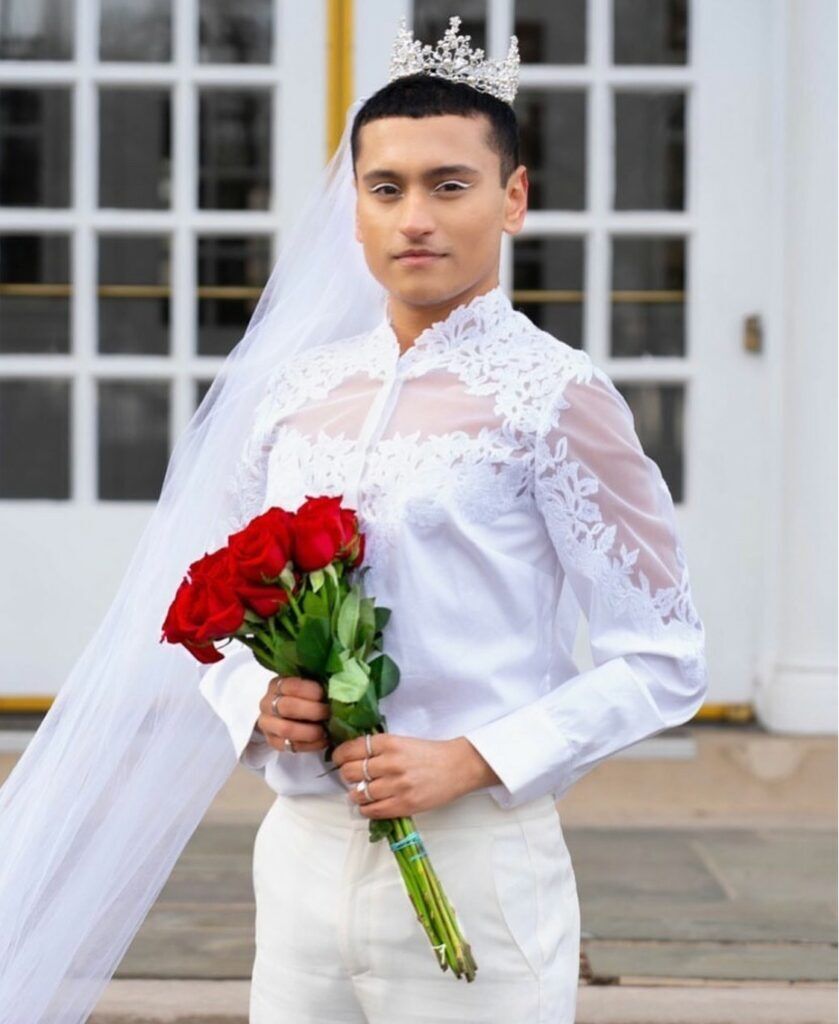
“My parents come from a lower-middle-class family in Pakistan, so life was never easy for us. They both never went to college, so my parents tried their best to get the best possible education for me. I spent most of my teenage years working extremely hard, changing schools in Pakistan on scholarships, eventually entering one of the best high schools there on a full scholarship.
“Studying abroad was beyond my comprehension because I thought it’s only for the privileged 1% of Pakistan. However, I saw a dream and made sure I work day and night for it which eventually led me to a life-changing 100% scholarship to study in the US.
“In all this hustle, I almost never found time for myself until last year when I finally accepted my queerness. I have not come out because I was never in the closet. I was always myself. I just never expressed my queer side.
“In 2020, as I started expressing myself creatively, I received more hate especially from my brown Muslim community which was very emotionally challenging to say the least. Queerphobia is such a big issue in our community and of course, losing support of your ‘bro friends’ whom you were close with earlier could be isolating sometimes. Spirituality helped me since day 1 to overcome each obstacle and become the best possible version of myself.
“Today, I am a strong, kind, independent (financially and emotionally) person who’s not afraid of any challenges 2021 or the coming year might bring.”
Burhan, @burhan.rebels (he/him)
Even with the constant erasure of our experiences as queer Muslims, we continue to exist unapologetically.
Gigi
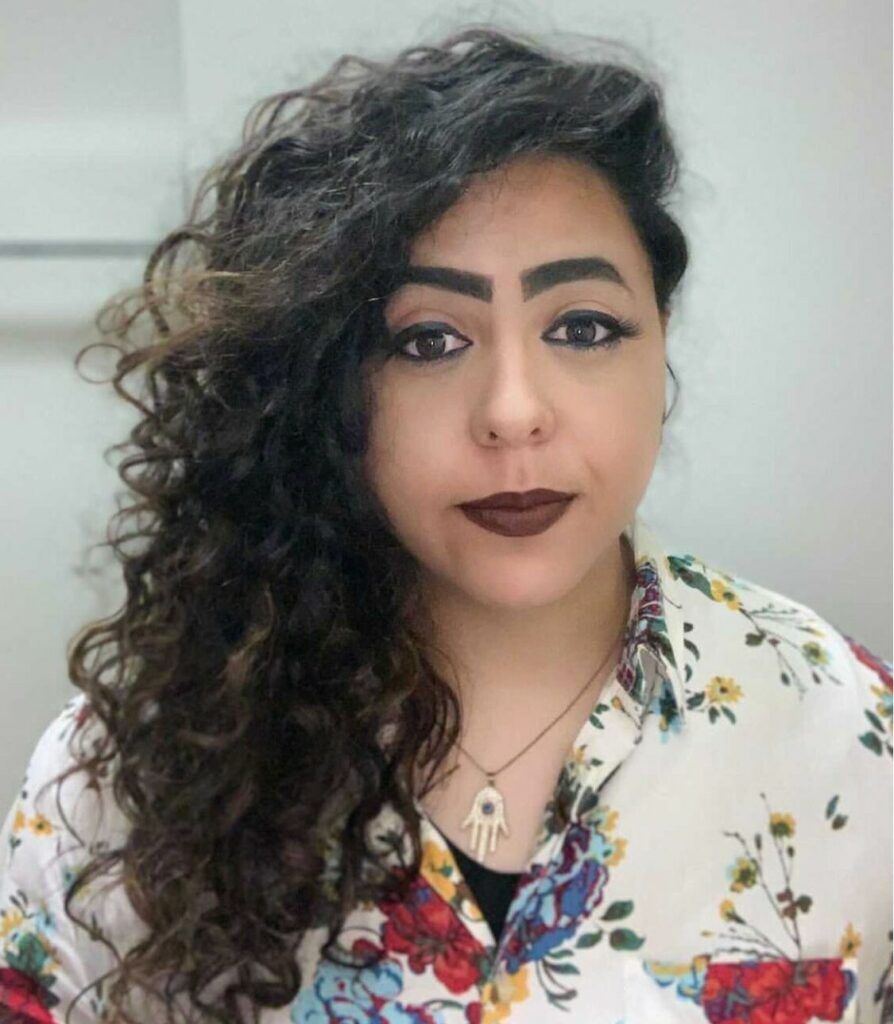
“Being a queer Muslim therapist has given me space to exist in ways I have never imagined. Becoming the person I needed so deeply when I was a kid has been healing for my inner-lonely-queer Muslim child. It is the healing I have needed in order to show up as my highest self in the therapist’s chair.
“In 2020, with the onset of the pandemic, I had a lot of feelings of hopelessness in being apart from my community. I found myself looking for spaces virtually to make that possible. Of the things that began to bring back hope has actually been my journey on TikTok.
“What started as a few videos for simple mental health tips, turned into an account that quickly grew into a wide range of building community with queer Muslims across the globe.
“I met people from countries I had never even heard of and it reminded me of something important, which is that even with the constant erasure of our experiences as queer Muslims, we continue to exist unapologetically. It pains me to face the hate I get within my own community from non-queer Muslims. Yet, despite that being the case, my message still stands in that I will continue to use my voice and identity as a tool towards our liberation.
“As a therapist who believes in decolonizing therapy, community care, and ancestral healing – I am going into 2021 with hopes of a re-imagined world. One where we as queer Muslims can find our place in a movement towards collective healing and liberation.”
Gigi, @g_zzz_xx (she/her)
Abdelmalek
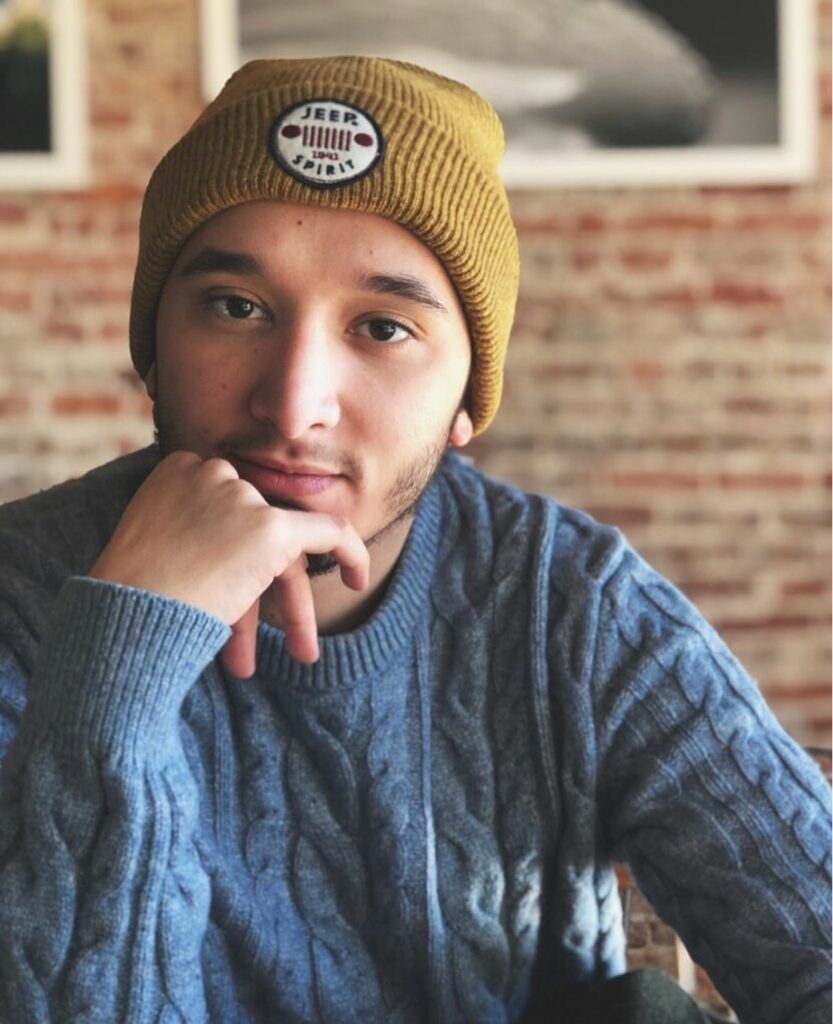
“Growing up in a Western society, I’ve had the privilege of being exposed to both heterosexual and queer experiences in popular culture. However, being raised in a conservative Sunni household has made this exposure forbidden.
“When I first came to realize I was attracted to men it was difficult and a constant mind battle filled with anxiety. I would watch gay coming-of-age films and live my fantasy of the raw sexual relationship between the characters. I was nervous that getting involved with a man would ultimately ‘westernize’ my image to family in the fear of knowing who I truly am.
“I think my most notable experience of pleasure was having sex with my current partner for the first time. It was hot, full of passion, and desire. For the first time, it made me not feel guilty about who I am or how I identify myself, but rather embrace being a bottom. It was a remarkable experience because in Arab culture the man isn’t usually thought to be submissive, but at this very moment, I felt on top of the world. It also illuminated the physical connection between my partner and me that works in tandem with the emotional devotion I have towards him.
“In that private moment between us, I can physically express my passion of being a gay Arab man to him which produces a cascade effect in the sense that I now take pride in how I dress and publicly advocate for the movement despite backlash from close family.”
Abdelmalek, @kingmalekie (he/him)
Sarah
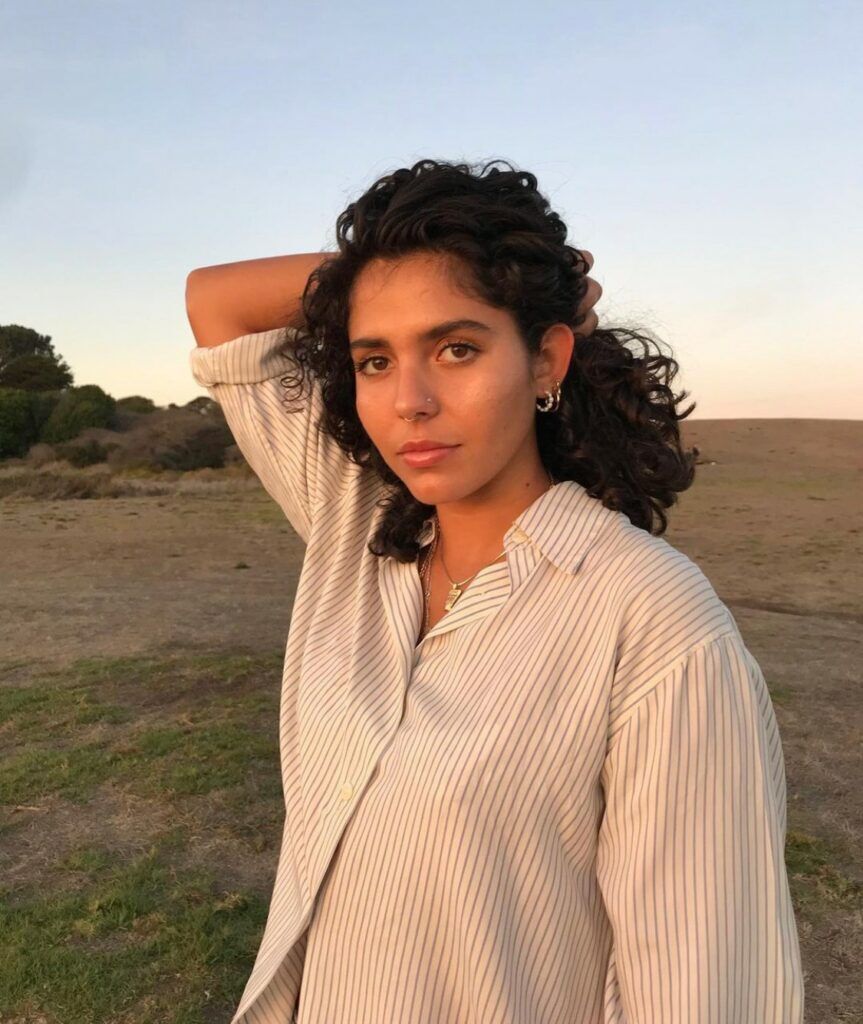
“I came into my queerness through a writing workshop for queer youth when I was in high school. I remember entering the space as an “ally” because I still wasn’t comfortable with who I was. At the time, I was wearing hijab and was hyper-aware of how visible I was in the space.
“I was terrified of being outed or “found out”. But the facilitator made it a point to really listen to me when I shared and ask me questions that encouraged me to explore with tenderness and consideration. This experience really shaped the way I approach facilitating.
“When I have worked with queer youth, especially youth of color, I have approached the workshop less as a place to create the best poem, but more so a place where you’re allowed to be present in your full self. A place where you can ask questions and be wrong and do that internal reflection and digging that we are often discouraged from doing.
“When I began accepting my queerness I thought I had to leave Islam. Everyone made it seem like being queer and being Muslim were oppositional experiences. It took me a long time to learn that the perceived tension between the two is in fact a direct result of white supremacy and colonization. That in fact, my queerness allows me to have a more fluid and balanced understanding of Islam, and that my faith pushes me to have a more grounded understanding of justice and working towards true freedom and liberation.
“Every time I’ve had a chance to facilitate writing spaces, especially for queer youth, I think about how important it is to practice actively listening to one another. How much hurt do so many of us carry because we feel so unheard and silenced?”
Sarah, @atayqueen (she/her)
Follow The Queer Muslim Project on Instagram at @TheQueerMuslimProject
Help make sure LGBTQ+ stories are being told...
We can't rely on mainstream media to tell our stories. That's why we don't lock our articles behind a paywall. Will you support our mission with a contribution today?
Cancel anytime · Proudly LGBTQ+ owned and operated
Read More in Culture
The Latest on INTO
Subscribe to get a twice-weekly dose of queer news, updates, and insights from the INTO team.
in Your Inbox

